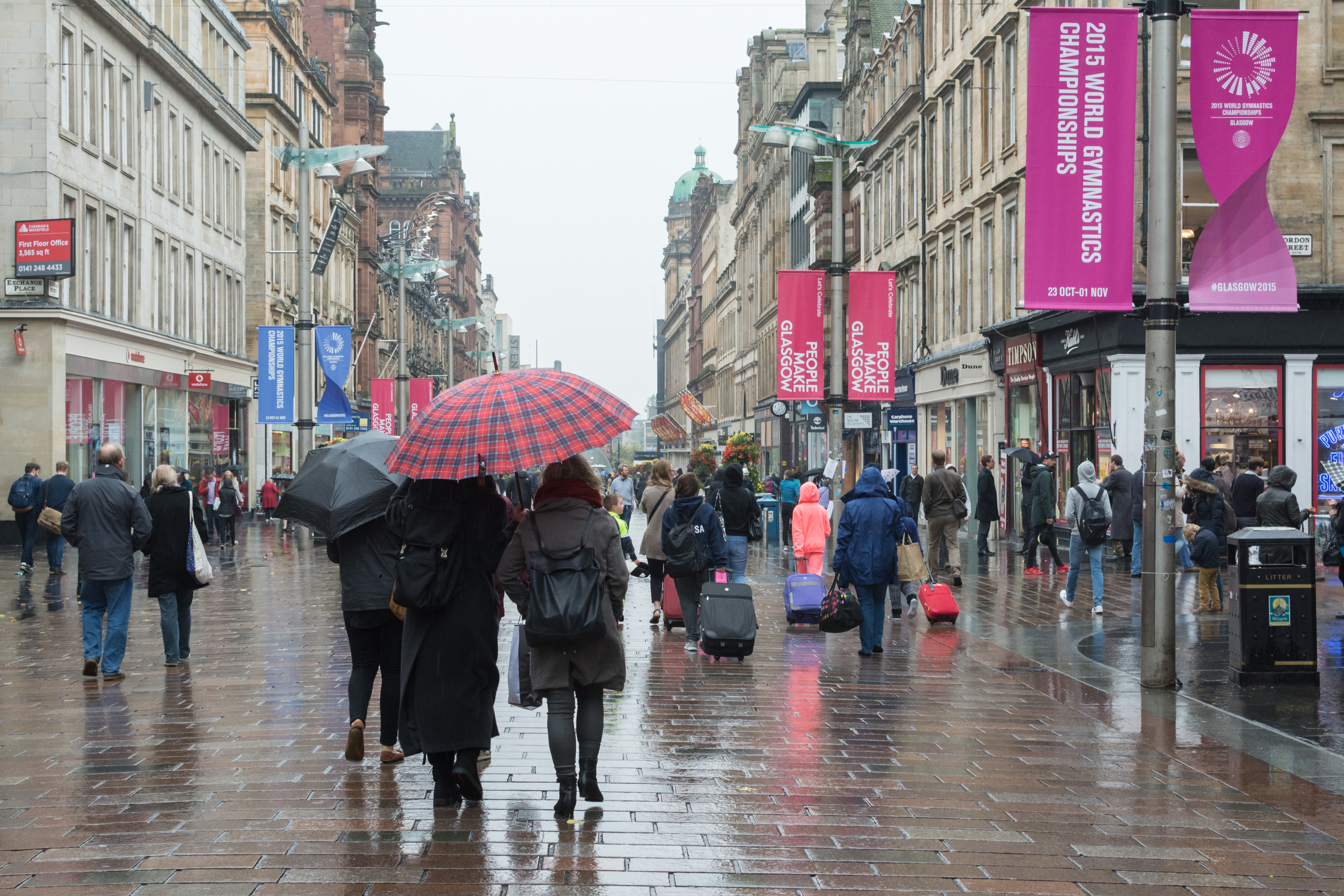
COUNCILS should be permitted to use a £50 million fund set up to help Scotland’s struggling high streets to cut business rates, according to retailers.
The Scottish Retail Consortium (SRC) has said local authorities should be allowed to use the town centre fund, which was announced by Finance Secretary Derek Mackay in his draft 2019-20 Budget, to reduce the financial burden on businesses.
The group made the plea in a submission sent to Mr Mackay and MSPs on Holyrood’s finance and economy committees ahead of more detailed scrutiny of the Budget proposals by the Parliament.
In his Budget statement to MSPs, the Finance Secretary said the £50 million capital fund would “support our town centres to diversify and develop, ensuring our town centres are thriving, sustainable places where people choose to spend their time”.
The SRC described this as a “promising move” which should help high streets with their “reinvention into modern and diverse retail destinations”.
But it argued “councils should be allowed to use this fund to cut business rates in their area” – as well as calling for the Scottish Government to reduce the large business rates supplement which is charged on “many” town centre businesses.
While councils already have the power to cut business rates in their area, the SRC said none of Scotland’s 32 local authorities had done so in 2018-19.
Just three councils have previously reduced the charges on businesses since being granted the power to do so more than three years ago, with such action being taken for limited periods only.
Consequently, the SRC demanded ministers “redouble their efforts to get more local authorities to capitalise on this opportunity to support high streets and town centres”.
The SRC said it is speaking out because the “economic backdrop for retailers is challenging”, adding this means the industry “has a heightened interest in fiscal and regulatory measures which either increase or lower costs”.
It indicated it is “open” to the current council tax system either being replaced or reformed – a key demand of the Scottish Greens if they are to support the minority SNP administration’s Budget – but also stressed the impact on consumers must be considered.
“Reforms to council tax which increase the tax burden on those on modest or average earnings is likely to negatively impact on consumer spending,” the organisation warned.
It said changes to council tax made as recently as two years ago had “added circa £150 million to household bills”.
Reforms to make the tax system “more modern and competitive” are also urged, with the SRC complaining the current business rates set-up “only seems to function through an increasing myriad of exemptions and reliefs”.
While it welcomed the below inflation rise in non-domestic rates, saying setting the headline rate lower than in England will save retailers an estimated £2 million next year, it added that rates bills are still set to rise by 2.1% in April – with this above the 0.5% growth in sales the sector has experienced over the last 12 months.
A Scottish Government spokeswoman said Mr Mackay had put forward a “budget of stimulus and stability”.
She said: “We welcome the Scottish Retail Consortium’s recognition of the positive impact of proposed Budget tax measures, in particular to provide certainty to businesses and protect lower and middle-income earners.
“We recognise the challenges faced by retailers in towns and cities, which is why the Budget also includes more than £5 billion of capital investment to grow and modernise infrastructure – including a new £50 million town centre fund to support the future of our high streets.”

Enjoy the convenience of having The Sunday Post delivered as a digital ePaper straight to your smartphone, tablet or computer.
Subscribe for only £5.49 a month and enjoy all the benefits of the printed paper as a digital replica.
Subscribe